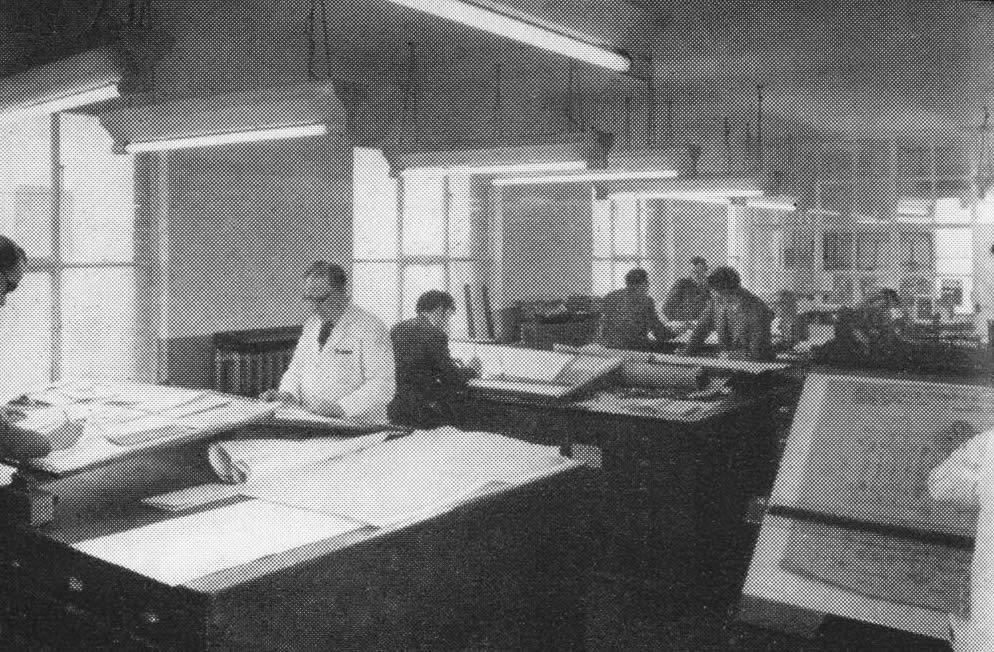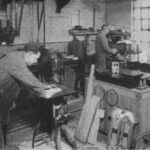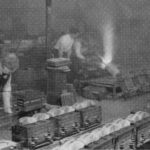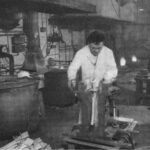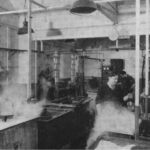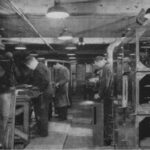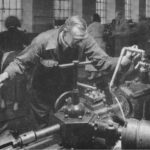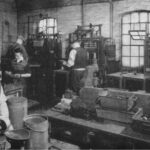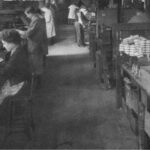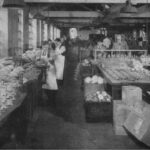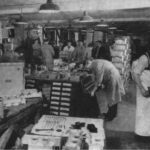Summary. McGeoch’s Warwick Works bravely weathered the Birmingham Blitz, showcasing the company’s resilience. Post-WWII, McGeoch’s electronics skills were pivotal in driving innovation, particularly in marine technology. Faced with market challenges, Warwick Works strategically diversified, effectively capitalising on the booming shipbuilding industry and leveraging McGeoch’s electronics skills. This journey exemplifies their adaptability and skill in electronics.
Birmingham Blitz: McGeoch’s Warwick Works Endures
Whilst McGeoch’s Warwick Works survived most of the Birmingham Blitz – in part due to the bravery and diligence of the works fire brigade headed by Captain Walter Heath, OBE – the company’s London Office at 48 Berners Street was not so lucky. One morning in the Autumn of 1940, a 1,000lb bomb completely demolished the premises leaving only the glass bowl of an electric light fitting hanging intact from a beam alongside an old photograph of the founder, William McGeoch, white-bearded and patriarchal.
Modern wars, notorious for their association with various forms of evil, also served as catalysts for technological advancements. Particularly in the post-World War II era, these advancements rapidly enhanced and inspired new inventions in fields such as aerodynamics, the internal combustion engine, marine and submarine design, radar, and electronics. In this realm, McGeoch notably possessed specific skills and interests.
After the war the almost immediate cessation of Government contracts presented a challenge to manufacturers everywhere. For McGeoch, and especially the company’s Warwick Works, there was a strong need to diversify.
As predicted, the cream of transatlantic passenger trade would become more and more carried on huge aircraft. This leaving transatlantic liners having to earn their keep with winter cruises. Over the next years, these became increasingly popular prompting shipping companies to invest in the building of new cruise liners. The demand for passenger-carrying car ferries also grew rapidly providing the shipyards with some fine building jobs and McGeoch with good orders for cabin brassfoundry. Ships would also have to be built for various special purposes including oceanography, fishing, fishing protection and lighthouse servicing and these created even more opportunities for McGeoch.
Warwick Works
At Warwick Works in Birmingham regular enquires were also being received for components connected with the electronics industry including small control panels, multiple-pin plugs & sockets and indicator lights .Coupled with the award of a huge Government contract for marine switchboards, the development of these would point the company in a new and successful direction for many years to come.
The images below show various aspects of McGeoch Warwick Works in post war Birmingham.
▼Click images to view …

